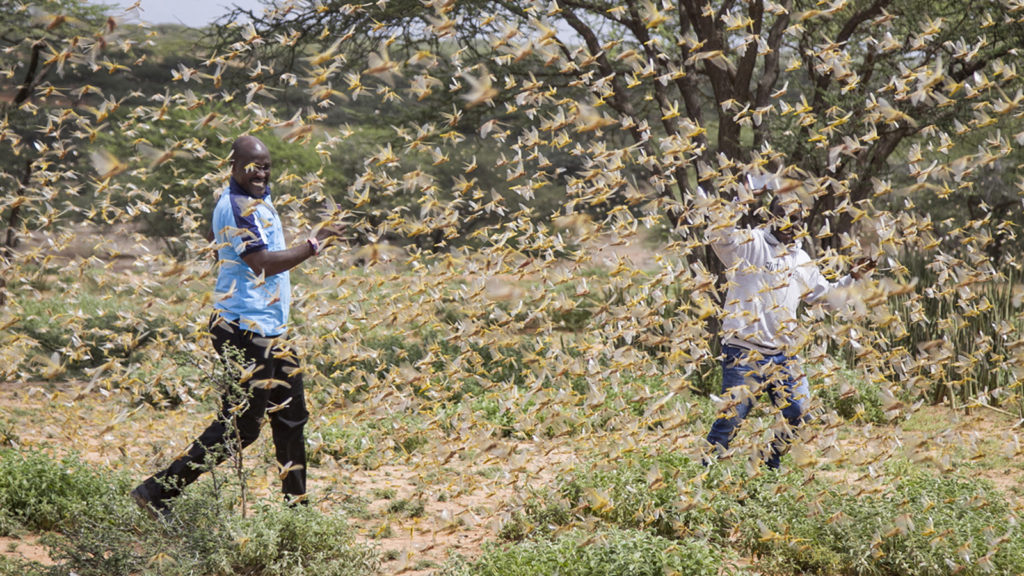UNITED NATION Emergency Relief Coordinator, Mr. Mark Lowcock, has warned of serious consequences if nothing is done within the next three weeks to check the locust outbreak in the Horn of Africa.

Lowcock gave the warning during a joint media briefing with senior official s of the Food and Agricultural Organisation (FAO) at the UN Headquarters in New York on Monday.
Unusual weather patterns, including heavy rains since October, and general climate conditions, are blamed for the spread of the desert locust swarms, which are feeding on crops.
The current outbreak is destroying tens of thousands of hectares of cropland and pasture in Ethiopia, Kenya, and Somalia.
Lowcock said no fewer than 30 million people in the affected countries were at immediate risk of food insecurity, with 10 million of them in the places affected by the locusts.
He said this was the worst outbreak in over 25 years in Ethiopia and Somalia, and the worst observed in over 70 years in Kenya.
According to him, Kenya was hit by a swarm of between 100 and 200 billion of locusts in January, covering an area of about 2,400 km square.
He explained that a swarm has the capacity to consume the same amount of food as 84 million people in one day.
“On Jan. 22 and 23, the FAO launched an alert and a response plan for $76 million to try and deal with this problem through surveillance and control, including spraying.
“On the same day, I released $10 million from the Central Emergency Response Fund (CERF).
“That was an unusual thing for me to do because normally when I am releasing money from CERF, it is for problems where there are people starving and dying right now.

“ I released this money because it was clear to me that unless there was a rapid response, we are going to have a huge problem later in the year if nothing was done now,’’ he said.
According to him, only $21 million has so far been realised, half of which came from the CERF.
“Unless we get a grip on this in the next two or four weeks we are going to have a really serious problem.
“We can make a lot of progress if we act now. The binding constraints is money.
“Our plea really is for those member states and other organisations who are thinking of doing something about this, don’t think for too long before you get the response in place because it is a very small window.’’
Mr Dominique Burgeon, FAO Director of Emergencies, said the locusts were spreading fast, with Uganda, South Sudan, and Tanzania already affected as of Sunday night.
Burgeon said in the affected countries there mature swarms of locusts laying eggs and producing a new generation that would be at the voracious stage by the next planting season.
“When you look at the crop calendar of that part of the world, we are currently in between two planting seasons.
“The locusts came towards the end of the last cropping season, and so damages were relatively limited
“But now, they are breeding big time and they would be ready for a very large damage by March and April, underscoring the fact that this is the time for us to scale up control operations,’’ he said.








